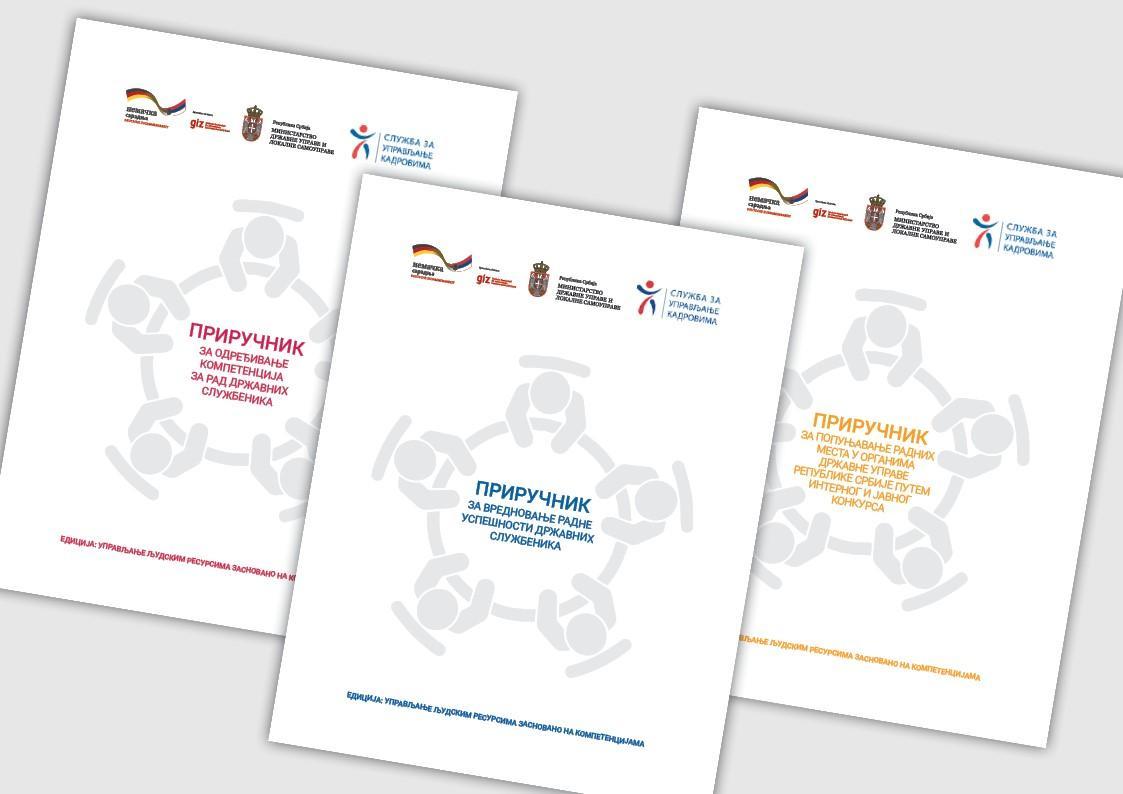The public administration reform, which has been under way for a number of years now in Serbia, also envisages the introduction of innovations in the human resources management system. The German Development Cooperation, in partnership with the Ministry of Public Administration and Local Self-Government (MPALS) and the Human Resources Management Office (HRM) published three manuals providing guidelines for the implementation of a competency-based human resources management system, intended for all civil servants including those who will become civil servants in the future. These manuals also provide guidelines for the application of new regulations in the human resources field, specifically for determining the competencies of civil servants, recruitment and performance assessment.
According to Milica Milošević, Project Manager, the support provided by the German Development Cooperation for the modern approach to human resources management has been comprehensive in the past four years when it comes to the introduction and implementation of the competency framework for civil servants. It included support for the development of a competency framework, for changing the normative framework to enable the introduction of the new system, as well as support for the start of application of the new system, including trainings for working with these innovative instruments, new job application forms, e-tests, educational videos and printed manuals. The objective of this reform is to increase the efficiency of the state administration by recruiting competent staff. The system itself is based on employee competencies, it strongly steers organizations toward meeting strategic goals and is one of the preconditions for efficient public services.
Ivana Savićević, Assistant Minister at MPALS, pointed out that the competency-based HR management is a major step forward for Serbia’s public administration and that the first analyses have revealed that the reform’s initial phase, which entails the implementation of competencies in the rules on systematization of positions and application of competencies in the recruitment process, has been successfully accomplished. The ultimate goal of the reform is to ensure the strategic importance and role of resources management in the public administration, and with a view to this, the support provided by GIZ in recent years as well as continued cooperation is extremely important for the development of this function, she stressed.
Dragana Janković, Assistant Director at the Human Resources Management Office, believes that the introduction of the competency-based framework in the legislative framework governing the civil service system in Serbia has enabled the full application of the principle of merit in all areas of human resources management. Compared to previous legislative solutions, the new procedures have increased the objectivity, transparency and merits of the recruitment process and reduced the impact of discretion in the selection of candidates, which ultimately resulted in fewer complaints regarding recruitment procedures. In relation to performance assessment of employees and their competencies, the objectivity of the assessment has been increased, resulting in a lower number of high scores than in previous years.
The German-Serbian Development Cooperation project “Support to the Public Administration Reform in Serbia in the process of EU accession” will continue to cooperate with relevant institutions with a view to supporting the professionalization of the human resources management system in the public administration and reform-related activities in the next three-year period. The project is implemented by GIZ.


